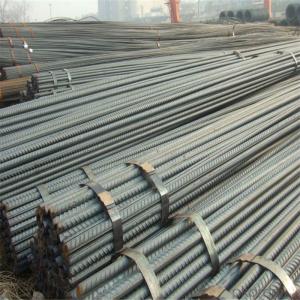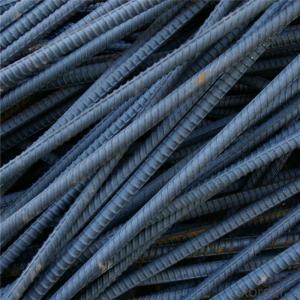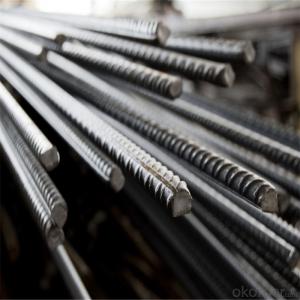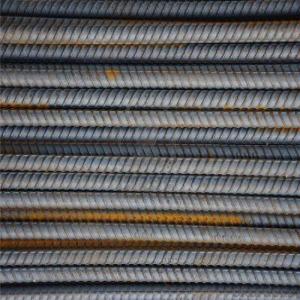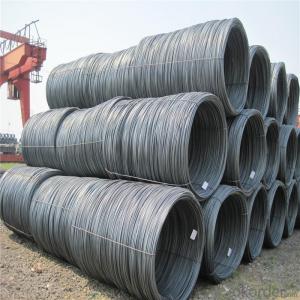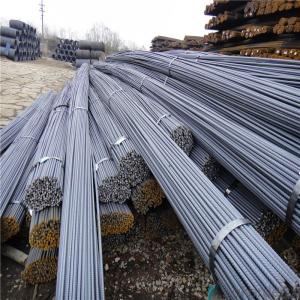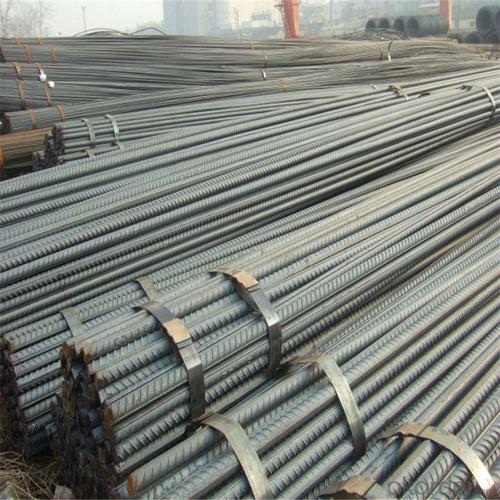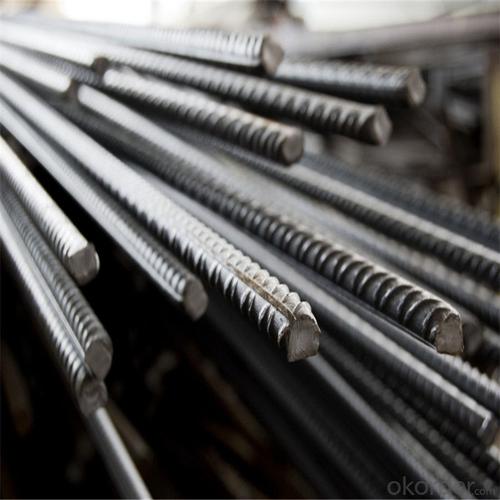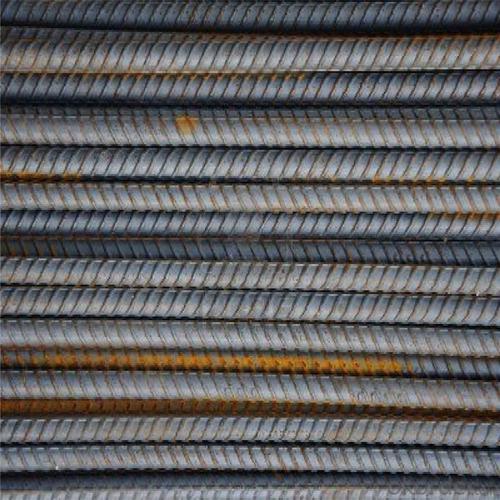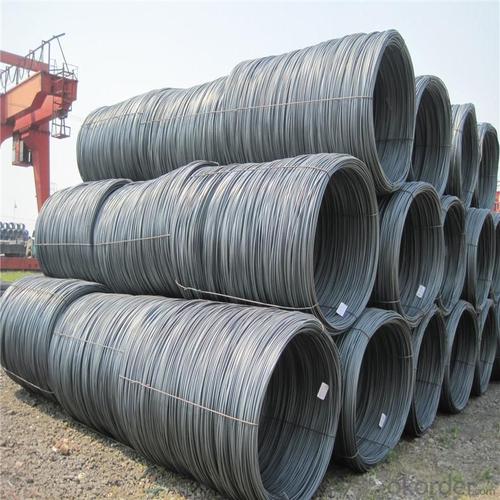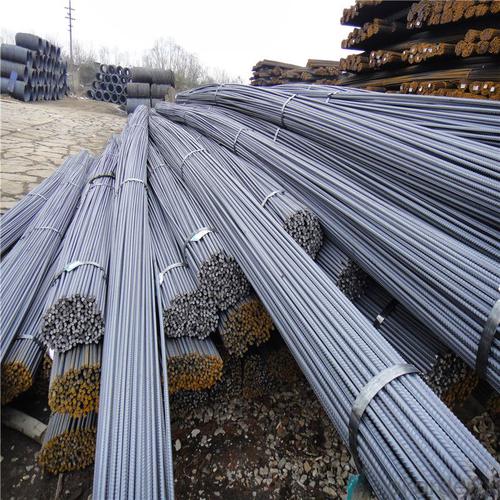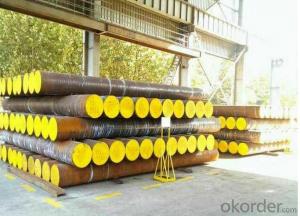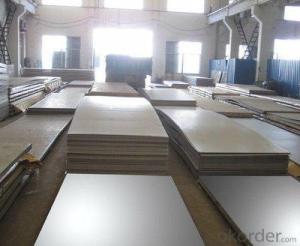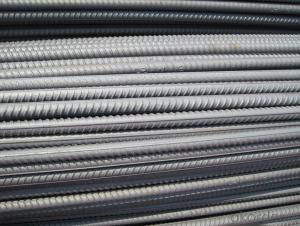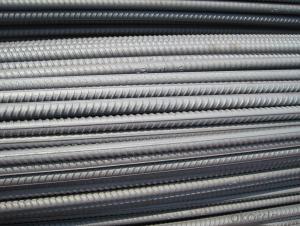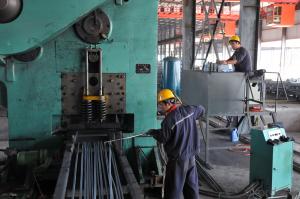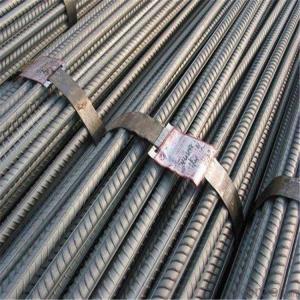Bs4449 Grade460 Deformed Steel Rebar
- Loading Port:
- Tianjin
- Payment Terms:
- TT OR LC
- Min Order Qty:
- 110 m.t.
- Supply Capability:
- 500000 m.t./month
OKorder Service Pledge
OKorder Financial Service
You Might Also Like
Specification
Bs4449 Grade460 Deformed Steel Rebar
Description of Bs4449 Grade460 Deformed Steel Rebar
1, Diameter: 5.5mm-10mm Bs4449 Grade460 Deformed Steel Rebar
10m- 40mm Bs4449 Grade460 Deformed Steel Rebar
2, Length: 6m, 9m, 12m or customized
3, Standard: GB, ASTM, AISI, SAE, DIN, JIS, EN
OEM technology - send detailed technical parameters for accurate quotation.
2, Produce Process: smelt iron - EAF smelt billet - ESR smelt billet -
hot rolled or forged to get the steel round bar and plate
3, Heat Treatment: annealing, normalizing, tempering, quenching
4, Surface Treatment: Black
5, Quality Assurance: We accept third party inspection for all orders.
You can ask testing organizations such as SGS, BV, etc. to test our products before shipping.
Chemical Composition of Bs4449 Grade460 Deformed Steel Rebar
Grade | Technical data of the original chemical composition(%) | |||||
Reinforcing steel bar HRB335 | C | Mn | Si | S | P | B |
≤0.25 | ≤1.60 | ≤0.80 | ≤0.045 | ≤0.045 | >0.0008 | |
Physics Capability | ||||||
Yield Strength(N/cm2) | Tensile Strength(N/cm2) | Elongation(%) | ||||
≥ 335 | ≥490 | ≥16 | ||||
Reinforcing steel bar HRB400 | C | Mn | Si | S | P | B |
≤0.25 | ≤0.16 | ≤0.80 | ≤0.045 | ≤0.045 | 0.04-0.12 | |
Physics Capability | ||||||
Yield Strength(N/cm2) | Tensile Strength(N/cm2) | Elongation(%) | ||||
≥ 400 | ≥ 570 | ≥ 14 | ||||
Products Show of Bs4449 Grade460 Deformed Steel Rebar
Company Information
CNBM International Corporation is the most important trading platform of CNBM group.
Whith its advantages, CNBM International are mainly concentrate on Cement, Glass, Iron and Steel, Ceramics industries and devotes herself for supplying high qulity series of refractories as well as technical consultancies and logistics solutions.


F A Q
1, Your advantages?
professional products inquiry, products knowledge train (for agents), smooth goods delivery, excellent customer solution proposale
2, Test & Certificate?
SGS test is available, customer inspection before shipping is welcome, third party inspection is no problem
3, Factory or Trading Company?
CNBM is a trading company but we have so many protocol factories and CNBM works as a trading department of these factories. Also CNBM is the holding company of many factories.
4, Payment Terms?
30% TT as deposit and 70% before delivery.
Irrevocable L/C at sight.
5, Trading Terms?
EXW, FOB, CIF, FFR, CNF
6, After-sale Service?
CNBM provides the services and support you need for every step of our cooperation. We're the business partner you can trust.
For any problem, please kindly contact us at any your convenient time.
We'll reply you in our first priority within 24 hours.
- Q: What are the main applications of special steel in the energy storage industry?
- Special steel is widely used in the energy storage industry for various applications. One of the main applications is in the manufacturing of high-quality battery cases, where the steel's exceptional strength and corrosion resistance ensure the safety and longevity of the batteries. Additionally, special steel is used in the construction of energy storage systems, such as pumped hydro storage and compressed air energy storage, due to its durability and resistance to extreme conditions. Overall, special steel plays a crucial role in ensuring the efficiency, reliability, and safety of energy storage technologies in the industry.
- Q: How is special steel used in the defense manufacturing process?
- Special steel is commonly used in the defense manufacturing process due to its exceptional strength, durability, and resistance to extreme conditions. It is utilized in the production of various defense equipment and components such as armored vehicles, submarines, aircraft carriers, and ballistic missiles. Special steel is crucial for enhancing the overall performance, reliability, and safety of these defense systems, making it an essential material in the defense manufacturing industry.
- Q: What is the purpose of annealing in special steel production?
- The aim of annealing in the production of special steel is to enhance the mechanical characteristics and overall quality of the steel. Annealing involves subjecting the steel to a particular temperature and gradually cooling it, typically in a controlled setting. This procedure aids in relieving any internal stresses or strains that might have developed during previous manufacturing processes like rolling or forging. During the annealing process, the microstructure of the steel goes through changes, resulting in a more refined and uniform material. The process allows for the redistribution of atoms, thereby eliminating defects, improving grain structure, and enhancing the steel's toughness, ductility, and machinability. Furthermore, annealing helps in reducing the hardness of the steel, rendering it easier to work with and shape. It also enhances the steel's resistance to cracking and increases its ability to withstand corrosion and other environmental factors. In certain special steel alloys, annealing can also be employed to achieve desired physical properties such as increased hardness or improved magnetic characteristics. Ultimately, the objective of annealing in the production of special steel is to optimize the steel's properties and ensure it meets the specific requirements of its intended application, be it in industries such as automotive, aerospace, or manufacturing.
- Q: What are the main advantages of using special steel in the automotive industry?
- Special steel has several main advantages in the automotive industry. Firstly, it offers increased strength and durability, allowing for lighter weight components without compromising safety. This not only improves fuel efficiency but also enhances overall vehicle performance. Secondly, special steel has excellent corrosion resistance, ensuring a longer lifespan and reducing maintenance costs. Lastly, its versatility enables the production of complex shapes and designs, enabling manufacturers to create innovative and efficient automotive structures.
- Q: Can special steel be used for making surgical instruments?
- Yes, special steel can be used for making surgical instruments. Special steel, such as stainless steel or high-carbon steel, is preferred for surgical instruments due to its excellent corrosion resistance, durability, and ability to be sterilized. These properties make it suitable for maintaining the hygiene and performance required in surgical settings.
- Q: What are the main characteristics of alloy steel?
- Alloy steel, which is produced by incorporating specific elements like chromium, nickel, or molybdenum into iron, possesses distinct properties and qualities. Some key features of alloy steel are as follows: 1. Remarkable strength: Alloy steel is renowned for its exceptional strength. The introduction of alloying elements enhances its capacity to endure high pressures and heavy loads, making it an ideal choice for applications necessitating a robust and long-lasting material. 2. Enhanced hardness: Alloy steel is also recognized for its hardness, surpassing that of regular carbon steel. This attribute renders it resistant to wear, abrasion, and deformation, making it suitable for applications that require resistance to impact or wear, such as the production of cutting tools or machinery components. 3. Resistance to corrosion: Depending on the specific alloying elements employed, alloy steel can display excellent resistance to corrosion. For instance, the addition of chromium is a common practice to create stainless steel, which exhibits high resistance to rust and corrosion. This attribute positions alloy steel as a preferred material in industries where exposure to moisture or corrosive environments is prevalent. 4. Heat endurance: Alloy steel possesses the ability to withstand high temperatures without compromising its strength or structural integrity. The inclusion of elements like nickel, molybdenum, or vanadium augments its resistance to thermal expansion, oxidation, and softening at elevated temperatures. This quality renders alloy steel suitable for applications in the aerospace, automotive, and power generation sectors. 5. Versatility: Alloy steel is a versatile material that can be readily tailored to meet specific requirements. Manufacturers can create alloy steel with a broad range of properties, such as improved ductility, toughness, or electrical conductivity, by modifying the composition and proportions of alloying elements. This adaptability permits the utilization of alloy steel in diverse industries, encompassing construction, manufacturing, and engineering. In conclusion, alloy steel exhibits high strength, hardness, corrosion resistance, heat endurance, and versatility. These characteristics establish alloy steel as the preferred choice for a wide array of applications that demand a sturdy, durable, and dependable material.
- Q: What are the main factors affecting the creep rupture strength of special steel?
- The creep rupture strength of special steel is influenced by various key parameters. These factors can be categorized into several categories. Firstly, temperature plays a significant role in determining the creep rupture strength of special steel. The operating temperature affects atomic diffusion and dislocation movement, which in turn leads to accelerated deformation and eventual failure. Higher temperatures can greatly reduce the creep rupture strength of special steel. Secondly, the time duration of the applied load also affects creep rupture strength. Creep is a time-dependent phenomenon, meaning that the longer the steel is under stress, the more likely it is to experience rupture. The relationship between time and creep rupture strength is usually described by a power law equation, with longer durations resulting in lower rupture strength. The stress level is another critical factor that influences creep rupture strength. Higher levels of stress lead to faster deformation and shorter time to rupture. Therefore, it is important to ensure that the stress applied to special steel remains within an acceptable range to maintain its desired creep rupture strength. The microstructure of special steel is crucial in determining its creep rupture strength. Factors like grain size, grain boundary characteristics, and the presence of alloying elements all impact the steel's resistance to creep deformation and rupture. Fine-grained microstructures with a high density of grain boundaries tend to exhibit better creep resistance and higher rupture strength. The chemical composition of special steel also significantly affects its creep rupture strength. The addition of certain alloying elements, such as chromium, molybdenum, and vanadium, enhances the steel's high-temperature strength and resistance to creep deformation. These elements form stable carbides that hinder dislocation movement and improve the material's creep rupture strength. Furthermore, the heat treatment process used to modify the microstructure of special steel can also impact its creep rupture strength. Proper heat treatment optimizes grain size, the distribution of alloying elements, and overall microstructure, resulting in improved creep resistance and higher rupture strength. In conclusion, the creep rupture strength of special steel is influenced by temperature, time, stress level, microstructure, composition, and heat treatment. Understanding and controlling these parameters are vital in ensuring the desired performance and reliability of special steel in high-temperature and long-term applications.
- Q: What are the safety considerations when handling special steel products?
- Special steel products require careful attention to safety. Firstly, wearing appropriate personal protective equipment (PPE) is crucial. Gloves, safety glasses, and steel-toed boots should be worn to safeguard against potential injuries from sharp edges, heavy weight, or flying debris. Secondly, it is important to take note of the weight and size of the special steel products. Mechanical lifting equipment or assistance from others may be necessary to prevent strain or injury when dealing with large or heavy items. Furthermore, a thorough inspection of the special steel products should be conducted prior to handling. This involves checking for cracks, fractures, or any other structural issues that could compromise their integrity. If any defects are discovered, they must be reported to the appropriate personnel and the products should not be used until they are deemed safe. In addition, specific handling techniques or tools may be required for special steel products. Strict adherence to the manufacturer's guidelines and instructions is crucial to ensure safe handling. This may involve utilizing specialized lifting equipment, clamps, or supports to prevent accidents or damage. Lastly, proper training and knowledge are essential for safe handling of special steel products. This includes understanding the weight limits of lifting equipment, knowing how to properly secure and stabilize the products, and being aware of any potential hazards or risks associated with the specific type of steel being handled. By adhering to these safety considerations, the risk of accidents, injuries, or damage can be minimized when dealing with special steel products.
- Q: How does special steel contribute to reducing product defects?
- Special steel contributes to reducing product defects by offering enhanced properties such as increased strength, durability, and corrosion resistance. These properties ensure that the steel components used in various products, especially in critical applications, are less prone to wear, breakage, or malfunction. By using special steel, manufacturers can create more reliable and high-quality products, which ultimately leads to a reduction in defects and improves overall product performance.
- Q: What are the requirements for special steel used in defense equipment manufacturing?
- The requirements for special steel used in defense equipment manufacturing typically include high strength and durability, resistance to corrosion and wear, good toughness and impact resistance, as well as the ability to withstand extreme temperatures and harsh environments. Additionally, the steel must meet stringent quality control standards and industry specifications to ensure its reliability and performance in critical defense applications.
Send your message to us
Bs4449 Grade460 Deformed Steel Rebar
- Loading Port:
- Tianjin
- Payment Terms:
- TT OR LC
- Min Order Qty:
- 110 m.t.
- Supply Capability:
- 500000 m.t./month
OKorder Service Pledge
OKorder Financial Service
Similar products
Hot products
Hot Searches
Related keywords
